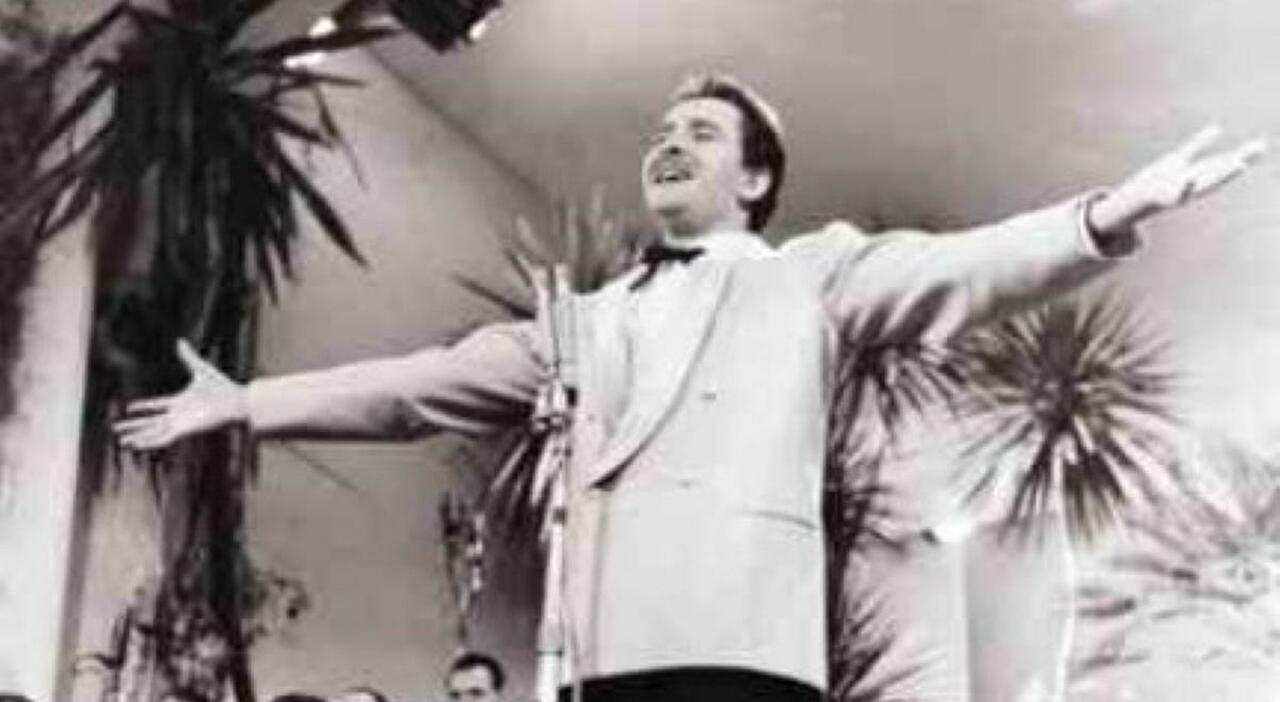Tonight on TV, Wednesday, November 27, on Rai 1 at 9:30 PM airs "Domenico Modugno. The Italian Who Enchanted the World", the documentary about the great singer who passed away on August 6, 1994.
A very prolific artist, he is considered one of the fathers of Italian pop music; he wrote and recorded about 230 songs, acted in 38 films for cinema and 7 for television, as well as performed in 13 theatrical productions and hosted several television programs and he won 4 Sanremo Music Festivals. While waiting to watch the documentary, let's find out more about the artist.
Who Was Domenico Modugno
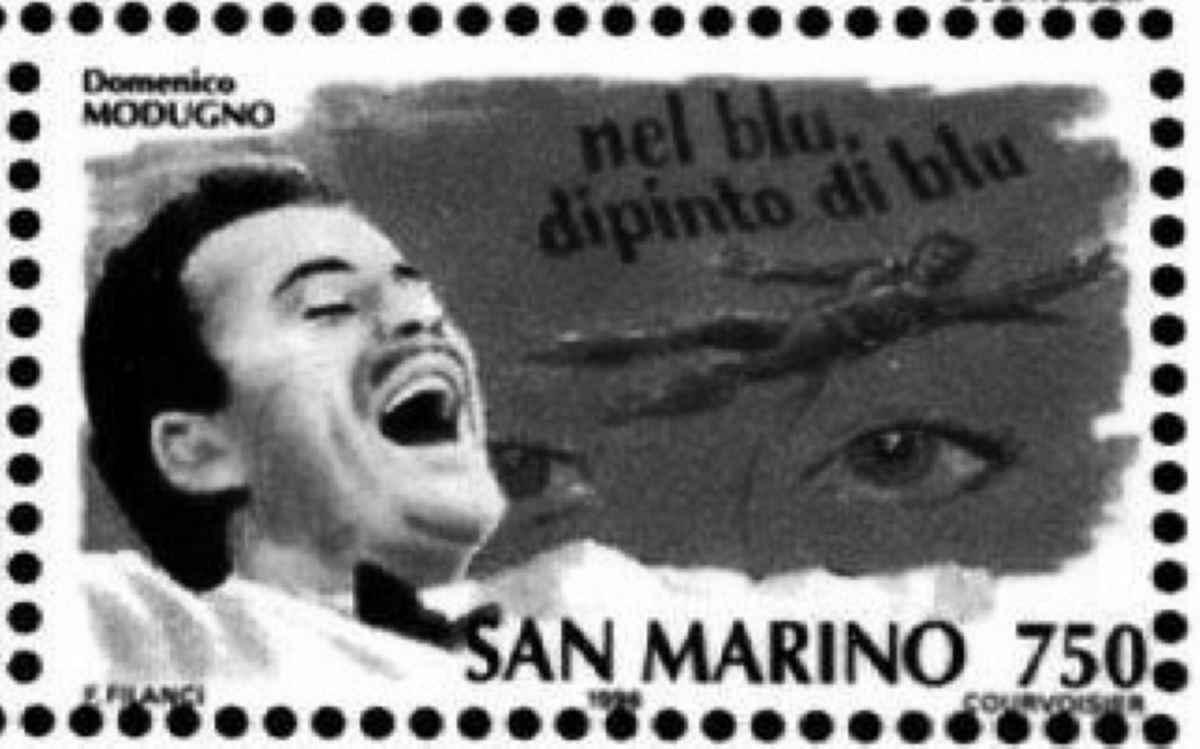
Domenico Modugno was born on January 9, 1928, in Polignano a Mare (where a seafront with a statue was later dedicated to him) at Piazza Minerva 5 (today Piazza Caduti di via Fani), in the province of Bari, to Vito Cosimo Modugno, a local police commander, and Pasqua Lorusso, from the nearby town of Conversano; he had two older brothers, Vito Antonio and Giovanni, and an older sister, Teresa, and since childhood, he was called Mimì within the family. He learned to play the guitar and accordion at a young age and inherited a great passion for music, composing his first song at the age of 15. Dissatisfied with village life, at 19 he ran away from home and went to Turin, the northernmost city in Italy, where he adapted to work as a tire repairer in a factory. Returning to his village to do military service, he left again for Rome where, in order to start his artistic career, he took on the most humble jobs once more. In 1951, he participated in the actors' competition at the Experimental Center of Cinematography, where he was admitted and subsequently won a scholarship as the best student in the acting section.
The Singer's Career
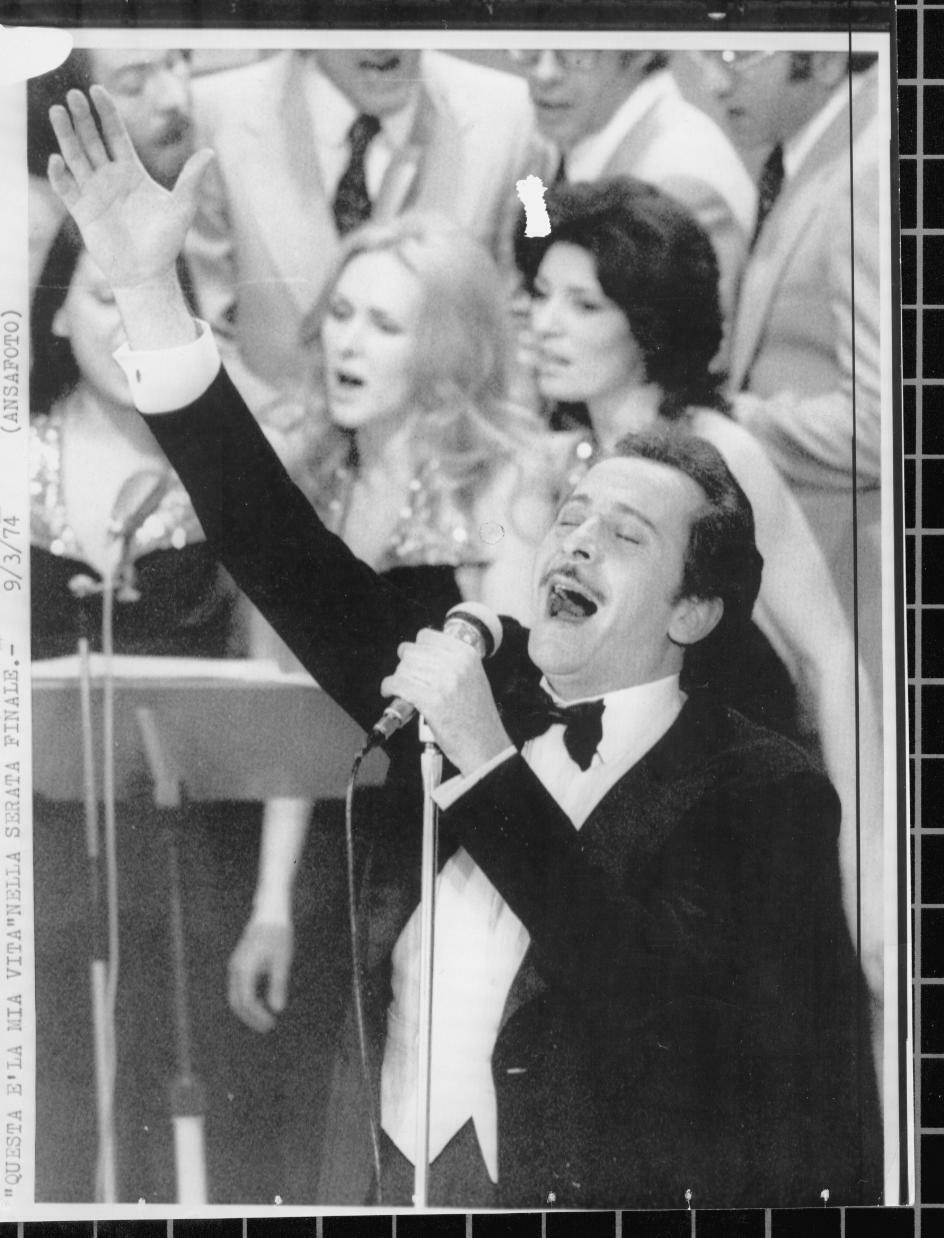
Starting his singing career, he became one of the protagonists of international pop music when in 1958 with Nel blu dipinto di blu (better known as Volare) he triumphed at the Sanremo Music Festival of 1958 along with Johnny Dorelli. The song, third at the Eurovision Song Contest, won a Grammy Award. Modugno participated in 11 Sanremo Music Festivals, winning four times (a record like Claudio Villa): in 1958 with “Volare”, in 1959 with “Piove” again paired with Johnny Dorelli, in 1962 paired with Claudio Villa with “Addio, addio” and in 1966 with “Dio come ti amo” together with Gigliola Cinquetti. In 1960 he came second together with Teddy Reno with “Libero”. He participated in three editions of the Eurovision Song Contest. In 1964 he won the Naples Festival with Ornella Vanoni with the song Tu si' 'na cosa grande. Domenico Modugno's songs have been translated into 150 countries. That song with the word "volare", in the collective imagination, was synonymous with freedom and lightness. But Modugno was above all a revolutionary for the Italian musical landscape, remaining traditional but with an eye on progress.
The Cinematic Career
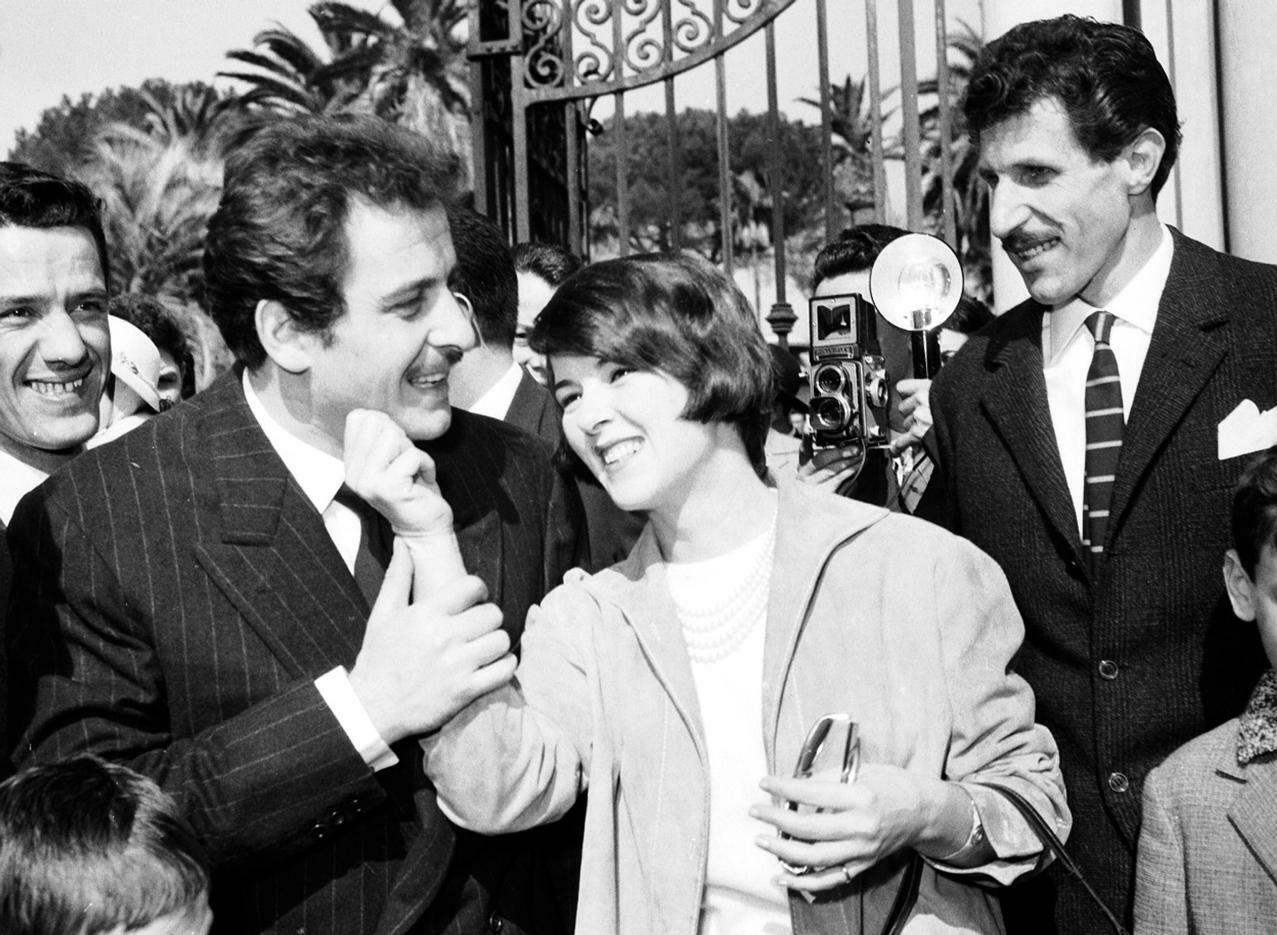
A theatrical and film actor, he acted in the musical comedy Rinaldo in campo (1961), by Garinei and Giovannini, and in Liolà, based on the famous work of Luigi Pirandello. In cinema, he starred in The Last Judgment by Vittorio De Sica, Everything Is Music (1963), in which he also directed, while from 1973 to 1976 he was Mackie Messer in The Threepenny Opera by Weill-Brecht, directed by Giorgio Strehler.
The Meeting with His Wife Franca Gandolfi
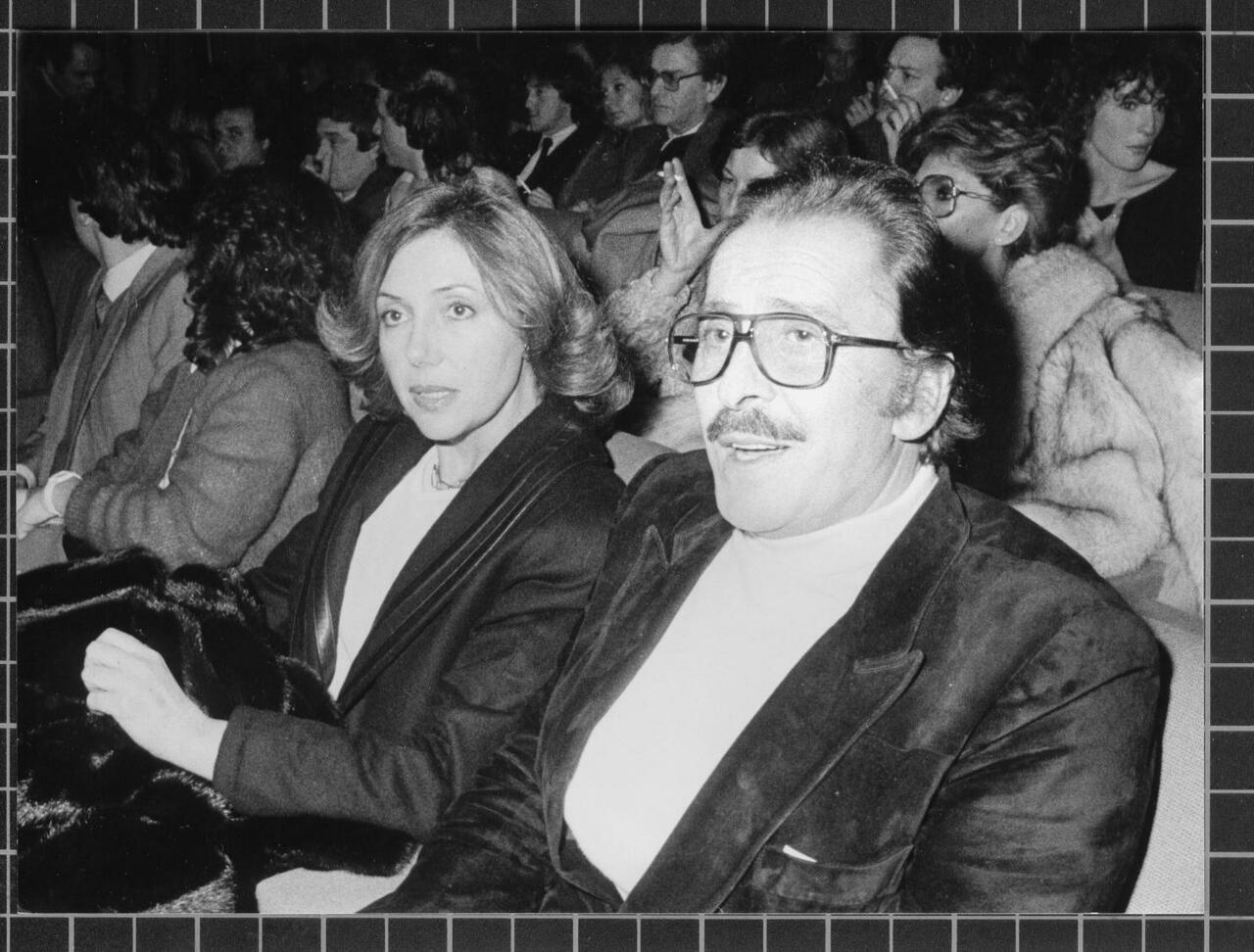
Modugno married actress and showgirl Franca Gandolfi in 1955, with whom he had his first child, director Marco Modugno, in 1958. The two met at the experimental cinematography center. Interviewed by Corriere della Sera, the woman recounted that director Luigi Zampa asked him to assist her during the audition, and he took advantage by giving her a kiss not required by the scene. “For that gesture, he seemed unpleasant to me and I kept him at a distance for a year” recounted Modugno's widow, but then at the year-end party of the course, something changed and the two reconnected. Five years passed from their first meeting and in 1955 they married civilly, then later the religious ceremony was also celebrated: “We felt the need to say yes in front of God, it was a moment just for us”. A few years after their marriage, in 1961, Modugno entered into a parallel relationship, without ever distancing himself, however, from his wife.
The Extramarital Affair
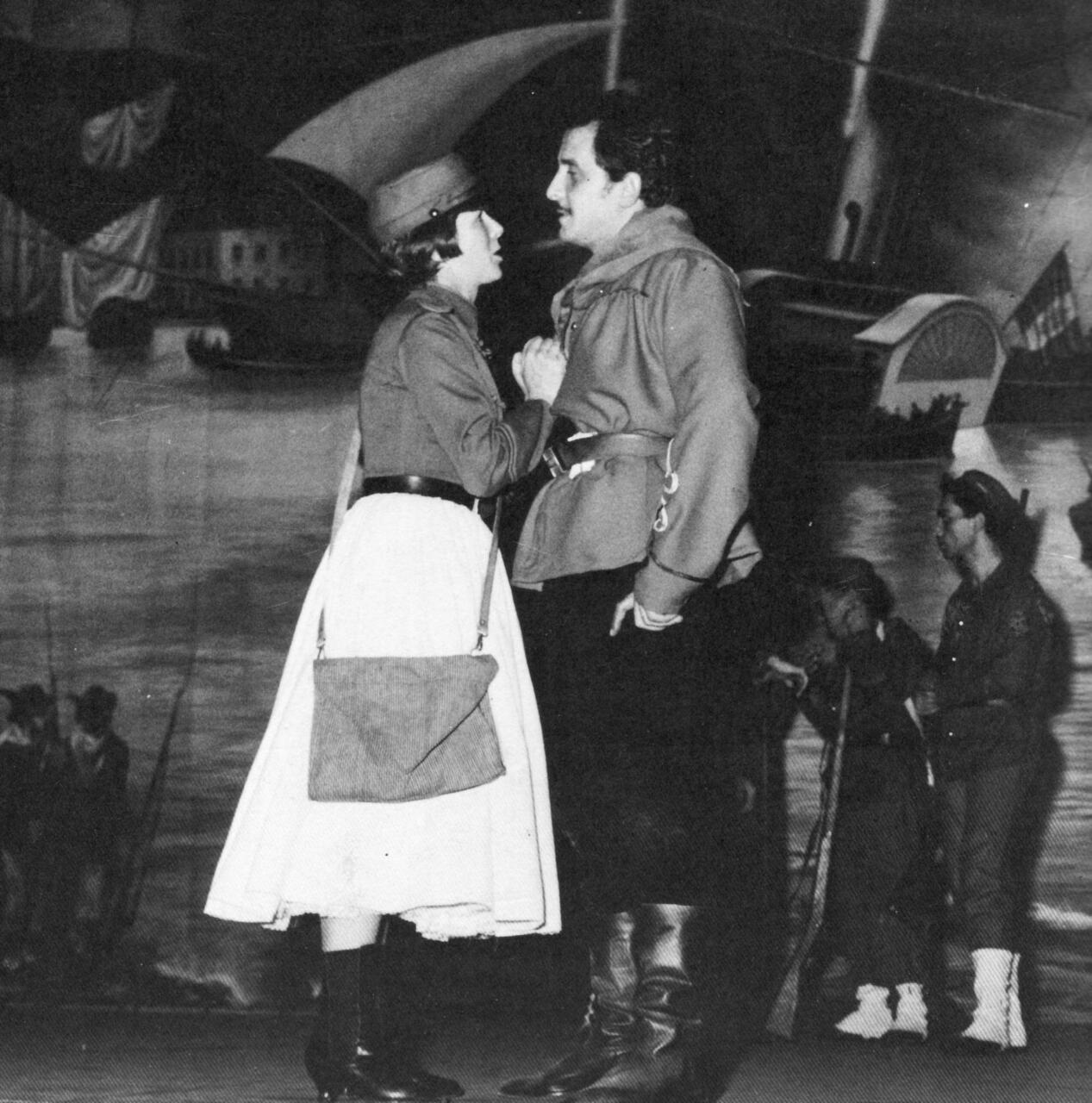
It was 1961 when during the production of Rinaldo in campo, the singer entered into a relationship with dancer, choreographer, and costume designer Maurizia Calì, who was then married to engineer Romano Camilli. The following year he had a second child with her, actor Fabio Camilli (recognized many years later), who was given the surname of his mother's husband, with whom he had no relations.
The Children with Franca
The love between Domenico and his wife Franca never ended so in 1966 the couple had twins Massimo and Marcello Modugno. All three children with Franca Gandolfi followed in his footsteps in some way: Massimo is a singer, Marco a director and screenwriter, while Marcello is an actor and musician.
The Legal Battle for the Recognition of Fabio Camilli
In August 2019, the First Civil Section of the Supreme Court of Cassation definitively recognized (after 18 years of legal battles) that Fabio Camilli, born on August 10, 1962, is also Modugno's son. “I had to fight a battle to assert who my father was. It was a tiring and exhausting journey,” Fabio Modugno told Ansa. Fabio discovered as an adult, not yet thirty, that he was born from a relationship between Mr. Volare and his mother, the dancer and director from Trieste Maurizia Calì, the "beautiful Kalì" of Pasqualino Maragià, one of Modugno's numerous successes, later a choreographer at the Sistina in Rome, the theater where she met Romano Camilli, a historic collaborator of Garinei and Giovannini. "I didn't get to know him in time," he said in 2001, commenting on an article by Pier Luigi Diaco in Il Foglio that revealed the news - "when I found out he was already sick and shortly after he died. And so the many questions I would have liked to ask him remained unanswered. Just as those I would have liked to ask the father I lived with for many years. When I managed to rebuild a relationship, no longer tainted by this affair, unfortunately, he too died."
The Illness: The Stroke, the Doctor's Carelessness, and 70 Cigarettes a Day
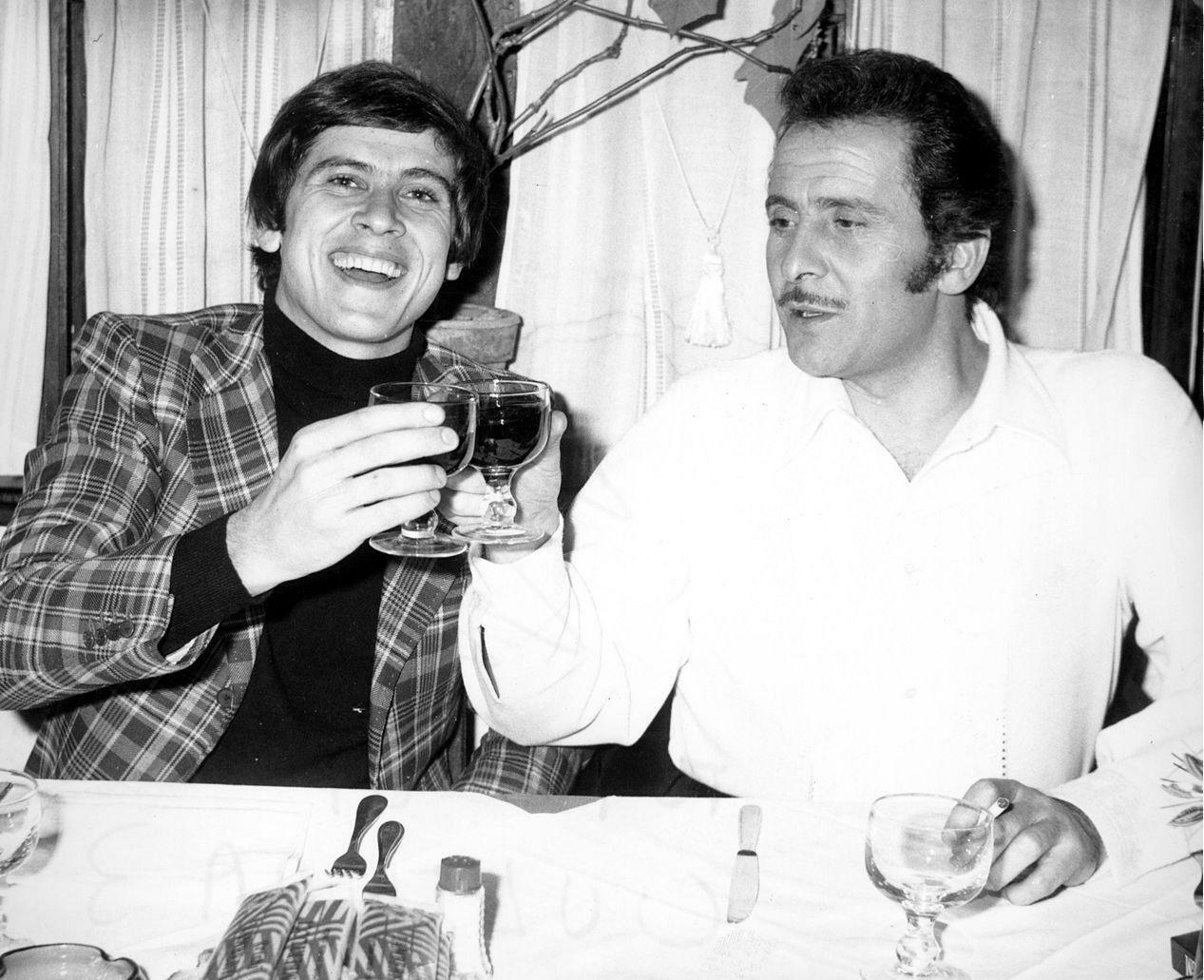
A brilliant career cut short by a premature death. The last ten years of the artist's life were marked by the illness that confined him to a wheelchair. The serious health problems began with a stroke on June 12, 1984 during the recording of the Canale 5 show La luna nel pozzo, at the television studios in Cologno Monzese. Modugno attributed the illness to his smoking habit, smoking up to sixty cigarettes a day. It seems that the on-call doctor underestimated his condition and advised him to take an aspirin and go home to rest. But shortly after leaving the hospital, the singer's condition worsened, and he was hospitalized for a stroke. The consequences were severe: he was left with one side of his body paralyzed and with difficulty speaking fluently and naturally.
Despite the physical difficulties, Modugno never stopped performing. In 1990 he was elected Senator with the Radicals, advocating for the rights of the disabled. The heart problems that arose after the stroke worsened in 1991, leading to an emergency hospitalization in Paris.
The Death in Lampedusa
On August 6, 1994, Modugno died prematurely at the age of 66 in his home in Lampedusa, struck down by a heart attack. The body was flown to Ciampino and subsequently to his Roman villa on the Appian Way, where a wake was organized. The funeral was held at the Basilica of San Sebastiano fuori le mura. Modugno's body was then buried in the Flaminio Cemetery in Rome.
This article is automatically translated
